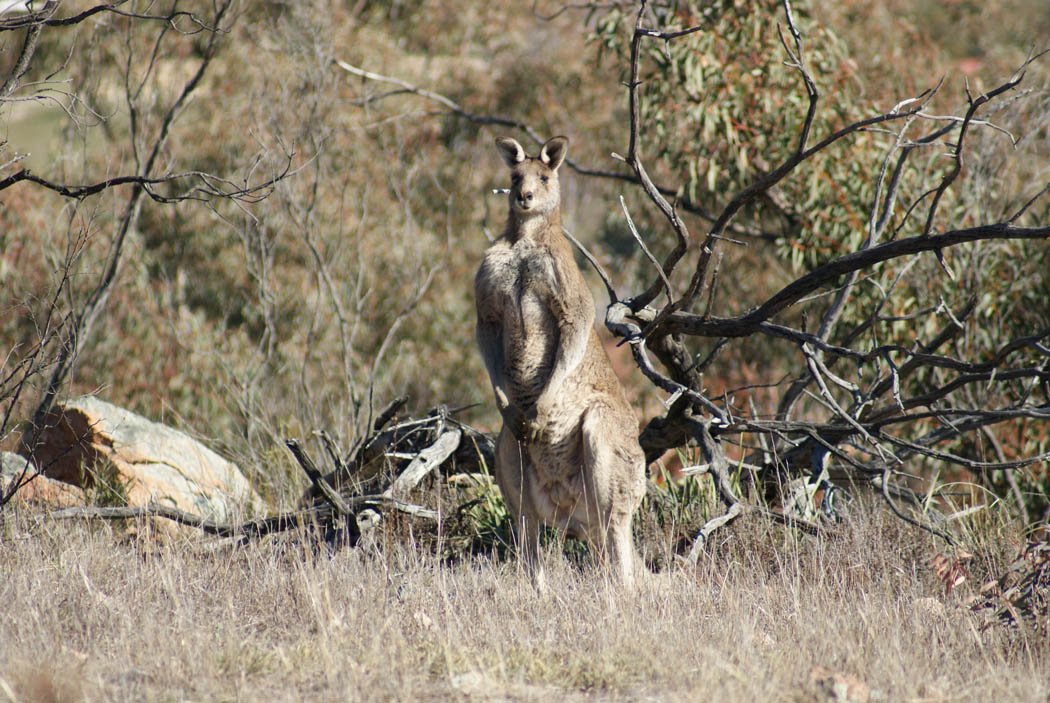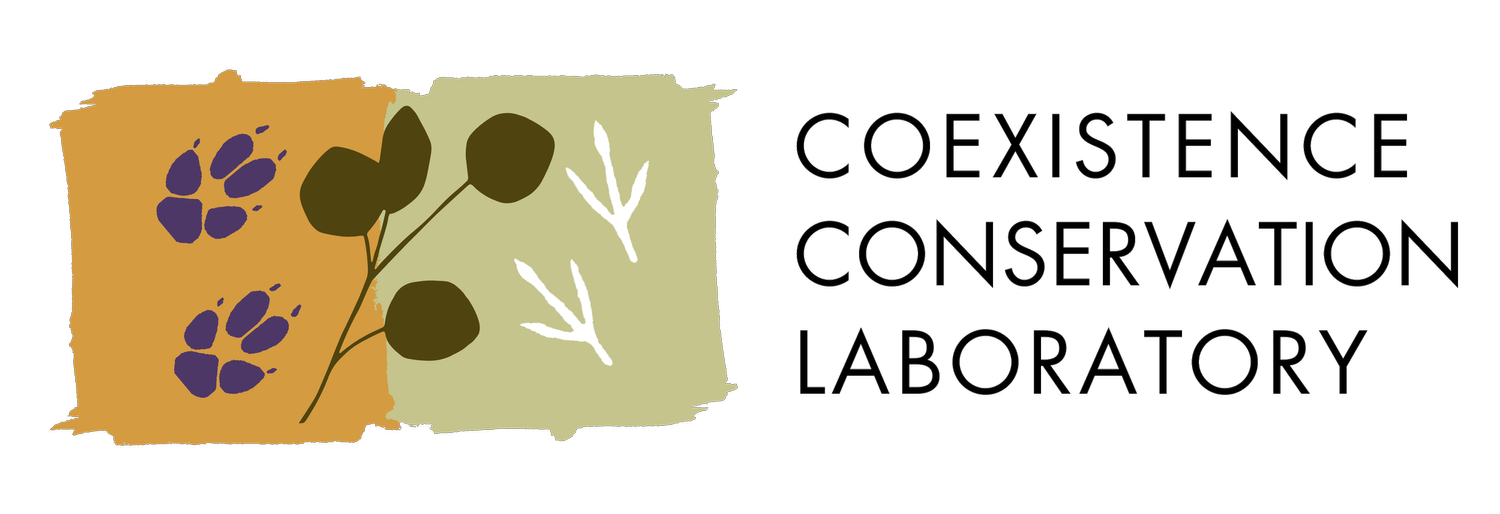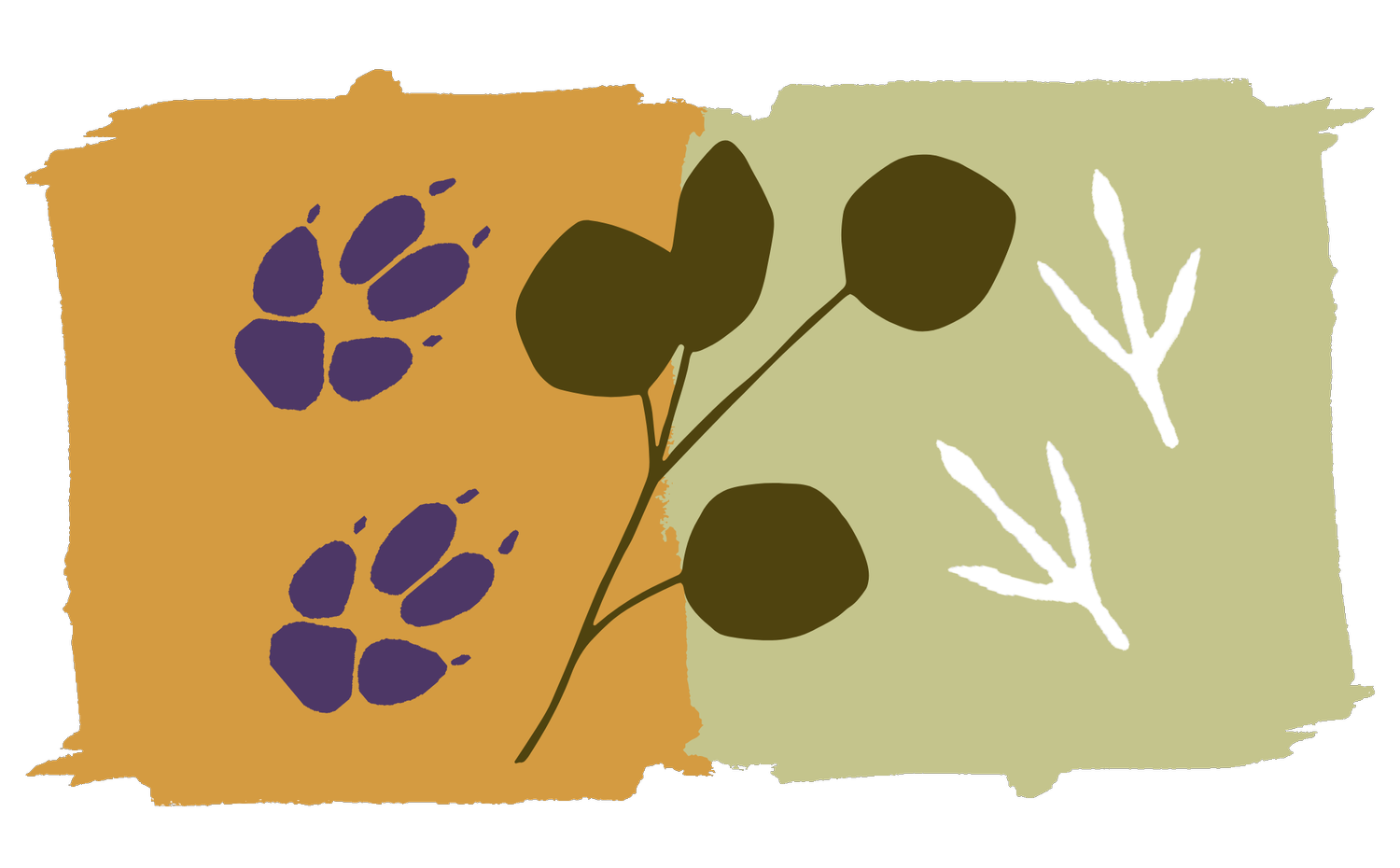
Grazing
Large herbivores can have a major influence on the structure and composition of vegetation communities. While some level of herbivory is required to maintain diverse vegetation communities, high levels can lead to declines in vegetation condition, and subsequent declines in faunal diversity.
Increased water availability and a reduction in predation by dingoes and man have allowed the population of eastern grey kangaroos (Macropus giganteus) to grow in recent years. This has led to the changes in vegetation condition.
We aim with to discover what level of herbivory is optimal for biodiversity conservation in grassy woodland ecosystems.
High densities of vertebrate herbivores can be a significant barrier to ecological restoration in many parts of the world because of their impact on vegetation biomass.
The research
The rewilding treatments as part of the Mulligans Flat-Goorooyarroo Woodland Experiment included areas of reduced macropod densities in order to measure the impacts of grazing on invertebrates, reptiles and biomass.
There were clear benefits to beetle populations from reduced grazing, especially in combination with the addition of coarse woody debris. The results of this study show strong potential for the combined use of exclosure fences and logs to reduce the effects of high densities of vertebrate herbivores and facilitate the restoration of beetle diversity at multiple scales.
Publications
Evans, M. J., et al. (2019). "A long-term experiment reveals strategies for the ecological restoration of reptiles in scattered tree landscapes." Biodiversity and conservation 28(11): 2825—2843.
McIntyre, S., et al. (2014). "Restoration of eucalypt grassy woodland: Effects of experimental interventions on ground-layer vegetation." Australian Journal of Botany 62(7): 570—579.
Howland, B., et al. (2014). "Eaten out of house and home: Impacts of grazing on ground-dwelling reptiles in Australian grasslands and grassy woodlands." PLOS One 9(12).
Manning, A. D., et al. (2013). "Bringing forward the benefits of coarse woody debris in ecosystem recovery under different levels of grazing and vegetation density." Biological Conservation 157: 204—214.
Barton, P. S., et al. (2011). "Experimental reduction of native vertebrate grazing and addition of logs benefit beetle diversity at multiple scales." Journal of Applied Ecology 48(4): 943—951.



